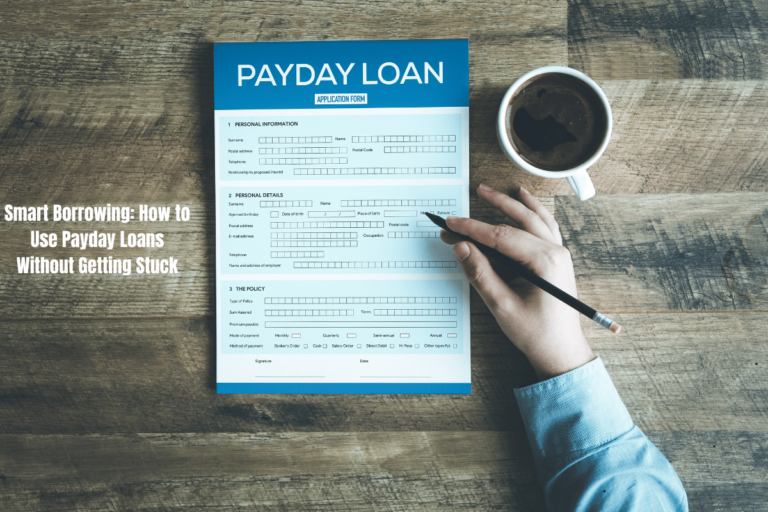Essential Foreclosure Prevention Strategies to Know
If you are struggling to keep up with your mortgage payments or have received a notice from your lender, it is important to take immediate action. Ignoring the problem will only make it worse and increase the likelihood of losing your home. Contact your lender as soon as possible and explore foreclosure prevention options. There are programs and assistance available to help homeowners facing financial difficulties.
Key Takeaways:
- Take immediate action if you are struggling with mortgage payments
- Contact your lender to explore foreclosure prevention options
- Programs and assistance are available to help homeowners facing financial difficulties
- Ignoring the problem will increase the likelihood of losing your home
- Act promptly and be proactive in addressing your financial challenges
Tips for Avoiding Foreclosure
When facing the possibility of foreclosure, it is crucial to take certain steps to prevent it. Here are some valuable tips to help you avoid foreclosure and safeguard your home:
- Don’t ignore letters from your lender: Ignoring correspondence from your lender will only make matters worse. Respond promptly to all communication.
- Contact your lender immediately: If you’re struggling with mortgage payments or have received a foreclosure notice, reach out to your lender as soon as possible. They may be willing to work with you to find a solution.
- Open and respond to all mail from your lender: It’s important to read and understand any notifications or offers sent by your lender. Promptly respond to their inquiries and requests.
- Understand your mortgage rights: Educate yourself about your rights as a homeowner. Know what options are available to you and what protections you have.
- Know foreclosure prevention options: Research and understand the foreclosure prevention programs and resources available in your area. These programs may provide assistance and guidance throughout the process.
- Contact a HUD-approved housing counselor: HUD-approved housing counselors can provide valuable advice and assistance in navigating the foreclosure prevention process. They can help you understand your options and develop a plan of action.
- Prioritize your spending: Assess your budget and prioritize essential expenses. Cut back on unnecessary spending and focus on making your mortgage payments a priority.
- Use your assets to reinstate your loan: Explore options to liquidate assets or tap into savings to reinstate your loan. This may help bring your mortgage payments up to date and prevent foreclosure.
- Avoid foreclosure prevention companies and scams: Be cautious of companies that promise to stop foreclosure for a fee. Many of these organizations are scams that prey on vulnerable homeowners. Seek guidance from trusted sources instead.
By following these foreclosure prevention tips, you can maximize your chances of avoiding foreclosure and protecting your home.
Expert Tip:
“Taking proactive steps and being proactive in addressing your financial challenges is crucial in preventing foreclosure. Remember, communication with your lender and staying informed about available options are key to safeguarding your home.”
– Jane Thompson, HUD-approved Housing Counselor
| Foreclosure Prevention Tips | Summary |
|---|---|
| Don’t ignore letters from your lender | Respond promptly to all communication |
| Contact your lender immediately | Seek assistance and explore possible solutions |
| Open and respond to all mail from your lender | Stay informed and address any inquiries or requests |
| Understand your mortgage rights | Know your rights and protections as a homeowner |
| Know foreclosure prevention options | Research available programs and resources |
| Contact a HUD-approved housing counselor | Get expert advice and guidance |
| Prioritize your spending | Make mortgage payments a priority |
| Use your assets to reinstate your loan | Explore options to bring payments up to date |
| Avoid foreclosure prevention companies and scams | Seek guidance from trusted sources |
Options for Stopping Foreclosure
When faced with the possibility of foreclosure, it’s crucial to explore available options to prevent it. Here are some strategies to consider:
Filing for Bankruptcy
If you’re in a dire financial situation, filing for bankruptcy can temporarily halt the foreclosure process and provide an opportunity to work out a repayment plan. It’s essential to consult with a bankruptcy attorney to understand the implications and determine if it’s the right choice for you.
Filing a Lawsuit
If you believe there are grounds for a legal dispute with your lender, filing a lawsuit can potentially stop or slow down the foreclosure process. Consult with a real estate attorney to assess your situation and explore this option.
Loan Modification
Loan modification is another viable strategy to consider. It involves working with your lender to modify the terms of your loan, such as reducing interest rates or forgiving a portion of the principal. This can help lower your monthly mortgage payments and make them more manageable.
Working with Your Lender
Open communication with your lender is crucial when facing foreclosure. Work with them to explore foreclosure prevention options such as forbearance or a short sale. Requesting forbearance allows for a temporary pause or reduction in mortgage payments, giving you time to address your financial situation. A short sale involves selling your property for less than the amount owed, with lender approval, to avoid foreclosure.
Remember, each situation is unique, and the best solution may vary depending on your circumstances. It’s essential to seek professional advice and explore all available options before making a decision.
Image: Visual representation of various foreclosure prevention options.
Making Home Affordable Program
The Making Home Affordable (MHA) program is a government initiative designed to help homeowners avoid foreclosure and stabilize the housing market. Through this program, homeowners can lower their monthly mortgage payments, refinance their loans, or get assistance if they are unemployed or owe more than their homes are worth. It is important to contact your lender or loan servicer to inquire about the options available under this program.
The Making Home Affordable program provides various initiatives to assist homeowners in need:
- Home Affordable Modification Program (HAMP): This program aims to reduce monthly mortgage payments to make them more affordable for eligible homeowners. It encourages lenders to modify loans by lowering interest rates, extending loan terms, or even forgiving a portion of the principal balance.
- Home Affordable Refinance Program (HARP): If you are struggling to refinance your mortgage due to a decrease in home value, the HARP program offers a solution. It allows eligible homeowners to refinance their loans into more affordable terms, even if they owe more than the current value of their homes.
- Home Affordable Unemployment Program (UP): If you are unemployed and are having difficulty making mortgage payments, the UP program provides temporary relief. It offers a forbearance period, during which your mortgage payments may be suspended or reduced to a more manageable level.
- Principal Reduction Alternative (PRA): If your home is significantly underwater, meaning you owe more than the home is worth, the PRA program can help. It enables eligible homeowners to receive a principal reduction on their mortgage, making it more affordable and preventing foreclosure.
- Second Lien Modification Program (2MP): If you have a second mortgage on your property, the 2MP program offers assistance. It works in conjunction with HAMP to lower payments on secondary loans, reducing the overall financial burden on homeowners.
By exploring the options available under the Making Home Affordable program, you can find foreclosure prevention solutions that suit your unique financial circumstances. Contact your lender or loan servicer to determine your eligibility and start the application process. Don’t let the fear of losing your home keep you from seeking the help you need.
Assistance for FHA-Insured Homeowners
For homeowners with FHA-insured mortgages, the Federal Housing Administration (FHA) offers a range of loss mitigation programs. These initiatives are specifically designed to assist homeowners who are facing financial hardship or unemployment, helping them avoid foreclosure and find stability in their homeownership journey. If you are an FHA-insured homeowner in need of assistance, there are resources available to help you navigate through this challenging time.
To access the support and information you need, consider reaching out to the National Servicing Center or the FHA Outreach Center. These organizations provide valuable guidance and can connect you with the appropriate FHA loss mitigation programs that align with your specific circumstances.
Examples of FHA Loss Mitigation Programs
| Program | Description |
|---|---|
| FHA Home Affordable Modification Program (FHA-HAMP) | This program offers eligible homeowners the opportunity to modify their FHA-insured mortgage, making it more affordable and sustainable in the long run. |
| FHA Special Forbearance | This program provides temporary relief by allowing homeowners to pause or reduce their mortgage payments for a specific period, giving them time to recover from financial hardship. |
| FHA Partial Claim | If you qualify for this program, the FHA can help you secure an interest-free loan to bring your mortgage payments up to date, making it easier to avoid foreclosure. |
| FHA Pre-Foreclosure Sale | Under this program, homeowners who are unable to keep up with their mortgage payments can sell their homes and avoid foreclosure, with the FHA providing guidance and support throughout the process. |
| FHA Deed-in-Lieu of Foreclosure | If foreclosure seems inevitable, this program allows you to transfer ownership of the property to the FHA, avoiding the lengthy foreclosure process and potential damage to your credit. |
These are just a few examples of the FHA loss mitigation programs available to FHA-insured homeowners. It is important to note that eligibility requirements and program details may vary, so it is advisable to contact the National Servicing Center or the FHA Outreach Center for personalized assistance and guidance.
Contacting Your Lender
If you are facing difficulties in making your mortgage payments, it is crucial to directly contact your lender or loan servicer. They have valuable information about foreclosure prevention options and assistance programs that can help you navigate through these challenging times.
When communicating with your lender, it is important to be proactive and provide them with all the necessary details regarding your financial situation. This will help them understand the scope of your difficulties and provide you with the appropriate foreclosure prevention guidance.
However, if you find it challenging to communicate effectively with your lender, there are organizations available to help you. These organizations specialize in foreclosure prevention and can contact your lender on your behalf, ensuring clear and effective communication.
“When facing foreclosure, open and honest communication with your lender is crucial. They are there to help you, so don’t hesitate to reach out.”
Benefits of Communicating with Your Lender
By directly communicating with your lender, you can:
- Gain a clear understanding of available foreclosure prevention options
- Learn about assistance programs specific to your situation
- Discuss the possibility of loan modifications or repayment plans
- Receive guidance on navigating the foreclosure process
Organizations That Can Help
If you are having difficulties communicating with your lender, consider reaching out to reputable organizations that specialize in foreclosure prevention. These organizations can help facilitate communication between you and your lender, ensuring that your concerns are heard and addressed.
Here are a few trusted organizations that can assist you:
| Organization | Contact Information |
|---|---|
| National Foreclosure Mitigation Counseling (NFMC) Program | Website: https://www.consumerfinance.gov/ |
| HUD-Approved Housing Counseling Agencies | Website: https://apps.hud.gov/offices/hsg/sfh/hcc/hcs.cfm |
| NeighborWorks America | Website: https://www.neighborworks.org/ |
Remember:
When facing foreclosure, don’t hesitate to contact your lender directly. They are there to assist you and provide foreclosure prevention options tailored to your situation. If you are having difficulty communicating with your lender, reach out to organizations specializing in foreclosure prevention for guidance and support.
Loan Modification and Refinancing
When it comes to reducing your monthly mortgage payments, loan modification and refinancing can be excellent options to explore. Loan modification involves negotiating with your lender to modify the terms of your loan, such as reducing interest rates or extending the loan term, which can ultimately lead to lower monthly payments.
Refinancing, on the other hand, allows you to replace your current loan with a new one that has better terms and lower monthly payments. This option can be particularly advantageous if you can qualify for a lower interest rate or if your financial situation has improved since you initially obtained your mortgage.
Both loan modification and refinancing can help you achieve the goal of reducing your monthly mortgage payments, making them more manageable and fitting within your budget. Depending on your needs and circumstances, one option may be more suitable for you than the other.
It’s important to note that loan modification and refinancing options are available through both government-run programs and those offered by financial institutions. Don’t hesitate to explore which options are best for you and reach out to your lender or a qualified housing counselor to guide you through the process.
Bankruptcy and Lawsuits
When all other options have been exhausted, filing for bankruptcy can provide temporary relief from foreclosure proceedings and open up avenues for negotiating a repayment plan. There are two types of bankruptcy that may be applicable, depending on your specific situation:
- Chapter 7 Bankruptcy: This type of bankruptcy involves the liquidation of assets to repay creditors. While it may result in the forgiveness of unsecured debts, it does not address mortgage payments directly. However, it can provide temporary relief by initiating an “automatic stay,” which temporarily halts foreclosure proceedings. During this time, you may have an opportunity to negotiate with your lender to modify your mortgage or develop a repayment plan that allows you to catch up on missed payments.
- Chapter 13 Bankruptcy: This type of bankruptcy allows you to establish a repayment plan based on your income and expenses. It gives you the opportunity to catch up on missed mortgage payments and reorganize your finances. Similar to Chapter 7, filing for Chapter 13 bankruptcy triggers an automatic stay, temporarily stopping foreclosure proceedings.
In addition to bankruptcy, another option to consider is filing a lawsuit against your lender if there are valid legal grounds to dispute the foreclosure. It’s essential to consult with an attorney experienced in foreclosure law to determine if pursuing a lawsuit is a viable option in your situation. Lawsuits can potentially stop or slow down the foreclosure process, providing an opportunity to negotiate with your lender or explore other alternatives.
“Filing for bankruptcy or pursuing a lawsuit against your lender are two potential options to temporarily halt foreclosure and explore alternatives. However, it’s important to seek legal guidance to navigate the complexities of these processes.”
+------------------------+------------------------------------------+ | Filing for | Stopping Foreclosure with Lawsuits | | Bankruptcy | | +------------------------+------------------------------------------+ | Options | | | | - Chapter 7 Bankruptcy | | | - Chapter 13 Bankruptcy | | | | | Benefits | | | | - Temporary relief from foreclosure | | | proceedings | | | - Opportunity to negotiate a repayment | | | plan or mortgage modification | | | - Automatic stay to halt foreclosure | | | proceedings | | | | | Considerations | | | | - Potential liquidation of assets in | | | Chapter 7 bankruptcy | | | - Requirement to adhere to the | | | repayment plan in Chapter 13 bankruptcy | | | - Legal grounds and viability of | | | pursuing a lawsuit | +------------------------+----------------------------------------+
Other Foreclosure Prevention Strategies
In addition to the options mentioned above, there are other strategies available to prevent foreclosure. As a homeowner, you have the opportunity to work with your lenders and explore alternative solutions that can help you retain your home and avoid foreclosure.
Repayment Plans
One option to consider is setting up a repayment plan with your lender. A repayment plan allows you to make additional payments over an agreed-upon period to catch up on missed mortgage payments. This can help you bring your loan current and avoid foreclosure.
Forbearance Agreements
Another possible solution is entering into a forbearance agreement. With a forbearance agreement, your lender temporarily reduces or postpones your mortgage payments for a specific period. This can provide you with some breathing room to get back on your feet financially and prevent foreclosure.
Short Sale
If you’re unable to keep up with your mortgage payments and owe more than your home is worth, a short sale may be an option worth exploring. In a short sale, you sell your home for less than the remaining balance on your mortgage, and the lender agrees to accept the proceeds as full satisfaction of the debt. This can help you avoid foreclosure and minimize the impact on your credit.
Deed in Lieu of Foreclosure
An alternative to foreclosure is a deed in lieu arrangement. In this scenario, you voluntarily transfer the ownership of your property to the lender in exchange for the cancellation of your debt. This can be an option if you have exhausted other alternatives and want to avoid the lengthy and costly foreclosure process.
It’s essential to remember that the availability and suitability of these strategies may vary depending on your financial situation and the policies of your lender. Consulting with a HUD-approved housing counselor or an attorney specializing in foreclosure prevention can help you navigate these options and make informed decisions to safeguard your home.
| Strategy | Description |
|---|---|
| Repayment Plans | Agreeing to a structured plan with your lender to catch up on missed mortgage payments over a specific period. |
| Forbearance Agreements | Temporarily reducing or postponing your mortgage payments to provide you with financial relief. |
| Short Sale | Selling your home for less than the remaining balance on your mortgage if you owe more than your home’s worth. |
| Deed in Lieu of Foreclosure | Voluntarily transferring ownership of your property to the lender to avoid foreclosure. |
Conclusion
Foreclosure is a serious issue that can have long-term financial consequences. However, there are numerous foreclosure prevention strategies available to homeowners. By taking proactive steps, seeking assistance from lenders and HUD-approved counselors, and exploring the options provided by government programs, you can protect your home and achieve financial stability.
It is crucial to act promptly and be proactive in addressing your financial challenges. Ignoring the problem will only make it worse and increase the likelihood of losing your home. Contact your lender as soon as possible and inquire about foreclosure prevention options. Additionally, consider working with a HUD-approved housing counselor who can guide you through the process and provide valuable insights.
Safeguarding your home requires diligence and perseverance. Stay informed about the foreclosure prevention programs available, such as the Making Home Affordable program and the FHA loss mitigation programs. These initiatives can help lower your monthly mortgage payments, refinance your loans, or provide assistance in case of unemployment or negative equity. By utilizing the resources at hand and staying proactive, you can safeguard your home and overcome the challenges presented by foreclosure.







